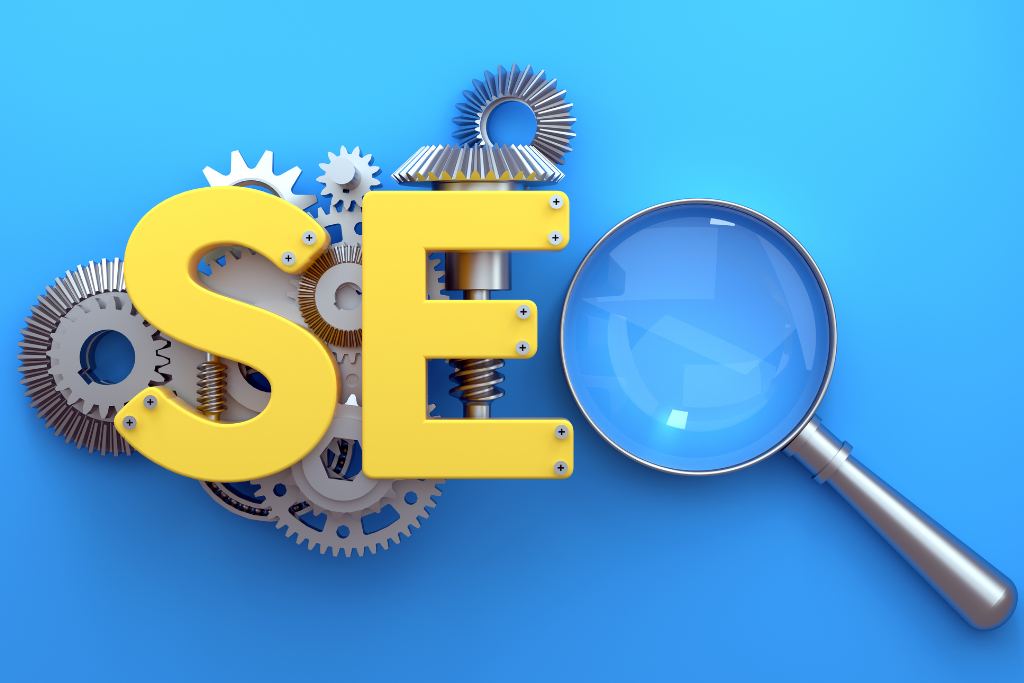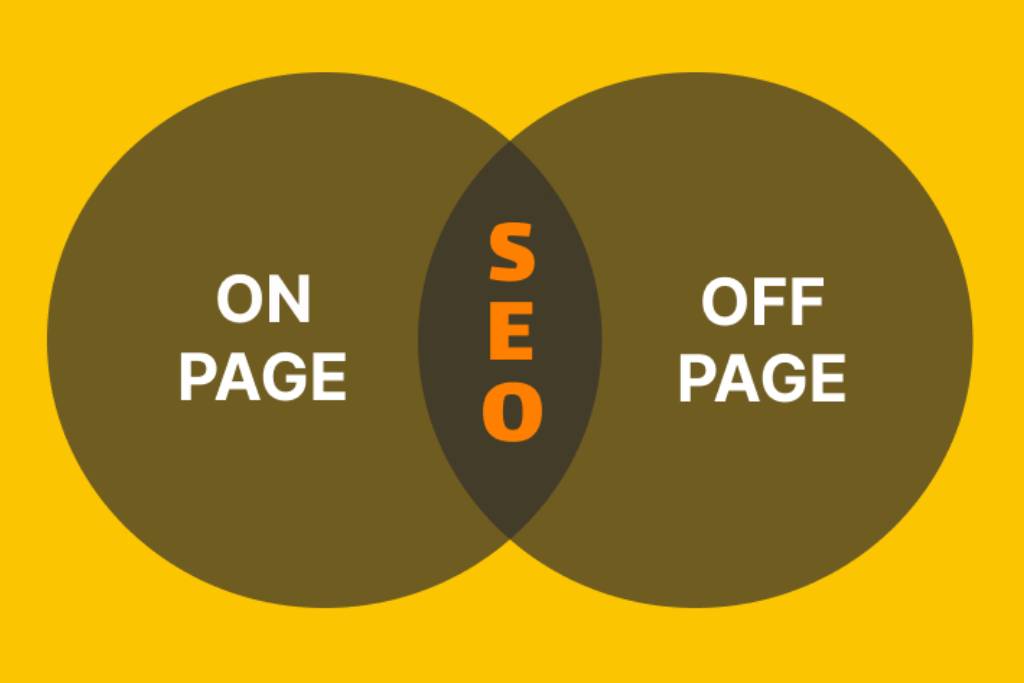How to Use Search Engine Optimization to Improve Your Website’s Ranking
Welcome to the world of search engine optimization (SEO), where your website’s ranking potential is unleashed! In today’s digital landscape, having a strong online presence is essential for any business or individual looking to thrive. And that’s where SEO comes into play.
Imagine this: You’ve built a beautifully designed website with informative and engaging content. But what good is it if no one can find it? That’s where SEO swoops in like a superhero, helping your website climb the ranks of search engine results pages (SERPs) and grabbing the attention it deserves.


But how exactly does SEO work? What are the strategies you need to employ to boost your website’s visibility? Don’t worry; we’ve got all the answers right here. So buckle up and get ready to embark on an exciting journey towards optimizing your website for success!
In this blog post, we’ll delve into the basics of SEO and explore its different aspects, such as keywords, backlinks, and content creation. We’ll also discuss both on-page and off-page optimization techniques that will help skyrocket your rankings. Plus, we’ll provide some valuable tips for optimizing your website’s content effectively.
But wait, there’s more! We won’t leave you hanging once you’ve implemented these strategies; we’ll guide you through measuring and tracking your SEO success so that you can see tangible results. And lastly, we’ll unveil some common mistakes people make in their SEO efforts—ones that you should avoid!
So grab a cup of coffee or tea (or whichever beverage suits your fancy) because, by the end of this blog post, you’ll be equipped with all the knowledge necessary to take charge of conquering those search engine rankings like a pro! Let’s dive right in!
Understanding the Importance of SEO
In today’s digital age, having a strong online presence is crucial for businesses and individuals alike. And that’s where search engine optimization (SEO) comes into play. Understanding the importance of SEO is key to improving your website’s ranking and attracting more organic traffic.
SEO first and foremost aids in getting you noticed by search engines like Google. When someone searches for a specific keyword or phrase related to your business, you want to be among the top results displayed on the search engine results page (SERP). This visibility can increase your website’s click-through rate and ultimately drive more qualified leads to your site.


Moreover, implementing effective SEO strategies can also enhance the user experience. By optimizing your website’s structure, navigation, and loading speed, users are more likely to stay on your site longer, engage with your content, and convert into customers or loyal followers.
Furthermore, SEO allows you to target specific audiences based on their search intent. By conducting keyword research and incorporating relevant keywords into your website content strategically, you can attract visitors who are actively searching for products or services similar to what you offer.
Additionally, investing in good SEO practices means staying ahead of the competition. With millions of websites vying for attention online, it’s important to stand out from the crowd. By constantly monitoring industry trends and adjusting your SEO strategy accordingly, you can maintain a competitive edge in the ever-evolving digital landscape.
Last, but certainly not least, ROI! Implementing effective SEO techniques is cost-effective compared to other marketing strategies like paid advertising. While it may take time to see significant results from organic traffic growth through SEO efforts alone, once achieved, those rankings will continue driving free traffic consistently over time without additional spending!
In conclusion
Understanding the importance of search engine optimization goes beyond merely increasing visibility; it encompasses enhancing the user experience while targeting specific audiences effectively. By implementing smart tactics backed by thorough research and analysis, such as utilizing relevant keywords strategically across high-quality content, businesses, and individuals can boost their website’s ranking and attract more organic traffic
The Basics of SEO: Keywords, Backlinks, and Content
When it comes to search engine optimization (SEO), three key components play a crucial role in improving your website’s ranking: keywords, backlinks, and content. Let’s take a closer look at each of these elements.
Keywords are the foundation of SEO. These are the words or phrases that people enter into search engines when looking for information. By incorporating relevant keywords into your website’s content, meta tags, and headers, you can increase its visibility to search engines.


Backlinks are another important aspect of SEO. These are links from other websites that point back to yours. Search engines consider backlinks as votes of confidence for your site’s credibility and relevance. The more quality backlinks you have, the higher your website is likely to rank in search results.
Content is king in the world of SEO. High-quality and original content attracts visitors and helps improve your website’s visibility on search engine results pages (SERPs). Make sure your content is well-written, informative, and optimized with relevant keywords.
By understanding the basics of SEO—keywords, backlinks, and content—you can lay a strong foundation for improving your website’s ranking on search engines.
On-Page vs Off-Page SEO
When it comes to optimizing your website for search engines, there are two main types of SEO that you need to focus on on-page and off-page.
On-page SEO refers to the elements that you can control directly on your website. This includes optimizing your meta tags, headings, URL structure, and keyword usage within your content. It also involves ensuring that your site is user-friendly and has a clear navigation structure.


Off-page SEO, on the other hand, focuses on building external factors that influence your website’s ranking. This includes acquiring quality backlinks from reputable websites, social media engagement, online reviews and mentions from authoritative sources in your industry.
Both on-page and off-page SEO are important for improving your website’s visibility in search engine rankings. While on-page optimization ensures that search engines understand what your webpage is about and helps improve its relevance to specific keywords or topics, off-page optimization signals credibility and authority by demonstrating how others perceive the value of your content through links and mentions.
Tips for Optimizing Your Website’s Content
When it comes to optimizing your website’s content, several key tips can help improve its visibility and ranking on search engine results pages.
First and foremost, it is important to conduct keyword research. This involves identifying the keywords and phrases that your target audience is likely to use when searching for products or services related to your website. By incorporating these keywords strategically throughout your content, you can increase the chances of your website appearing higher in search engine rankings.


In addition to using relevant keywords, it is crucial to create high-quality and engaging content. The days of stuffing web pages with keywords are long gone. Instead, focus on providing valuable information that meets the needs of your audience. This will attract more visitors and encourage them to spend more time on your site.
Another tip for optimizing your website’s content is building backlinks from reputable sources. Backlinks serve as “votes” for the credibility and authority of your website, according to search engines like Google. Seek out opportunities for guest blogging or collaborate with influencers in your industry who can link back to your site.
Furthermore, make sure that you optimize meta tags, such as title tags and meta descriptions. These elements provide a summary of what each webpage contains, helping both users and search engines understand its relevance.
Regularly update and refresh older content on your site by adding new information or tweaking existing sections based on updated keyword research or changes in user behavior patterns.
By following these tips for optimizing your website’s content, you can enhance its visibility online and ultimately drive more organic traffic from search engines!
Measuring and Tracking Your SEO Success
One of the key aspects of a successful SEO strategy is being able to measure and track your progress. Without this insight, it’s difficult to know if your efforts are paying off or if changes need to be made. Thankfully, there are several tools available that can help you monitor and analyze the performance of your website.
One important metric to keep an eye on is organic search traffic. This refers to the number of visitors who find your website through search engine results pages (SERPs). By tracking the organic traffic over time, you can see if your SEO tactics are resulting in increased visibility and exposure.


Another valuable metric is keyword rankings. By monitoring where your website ranks for specific keywords related to your business or industry, you can gauge how well you’re optimizing for those terms. If certain keywords consistently rank low, it may be necessary to reevaluate your content and optimization strategies.
Backlinks are also crucial indicators of SEO success. Monitoring the quantity and quality of backlinks pointing to your site can give you insights into how well others perceive and value your content. High-quality backlinks from reputable sources will boost your credibility with search engines.
In addition to these metrics, it’s important to track other factors such as page load speed, bounce rate, and conversion rates. These metrics provide further insights into the user experience and engagement on your site.
Regularly reviewing this analytics data will allow you not only to identify areas for improvement but also to make informed decisions about future SEO strategies. Keep in mind that SEO is an ongoing process; what works today may not work tomorrow as search engine algorithms constantly evolve.
By investing time in measuring and tracking your SEO success, you’ll have a better understanding of what’s working well for improving rankings and attracting relevant traffic, ultimately leading to greater online visibility for your website!
Common Mistakes to Avoid in SEO
While there are various strategies and techniques you can use to improve your website’s ranking through search engine optimization (SEO), it’s equally important to be aware of common mistakes that can hinder your progress. By avoiding these pitfalls, you can ensure that your SEO efforts yield the best results possible.
1. Keyword Stuffing: One mistake many website owners make is overusing keywords in their content. While it’s essential to include relevant keywords throughout your site, stuffing them unnaturally into every sentence will turn off readers and raise red flags with search engines. Instead, focus on creating high-quality, valuable content that naturally incorporates relevant keywords.
2. Ignoring Mobile Optimization: With the rise of mobile devices, optimizing your website for mobile users is crucial for both the user experience and SEO rankings. Make sure your site is responsive and easily accessible on smartphones and tablets.
3. Neglecting On-Page SEO Elements: On-page elements such as title tags, meta descriptions, header tags, and alt text play a significant role in determining how search engines understand and rank your content. Failing to optimize these elements properly can harm your chances of achieving higher rankings.
4. Neglecting Off-Page SEO Strategies: While on-page factors are important, off-page factors like building quality backlinks from reputable websites should not be overlooked either. Building a strong network of backlinks signals credibility to search engines and helps boost organic traffic.
5. Lack of Fresh Content: Search engines love fresh content! Updating your website regularly with new blog posts or articles keeps visitors engaged and improves visibility by signaling relevance to search engines.
6. Poor Website Performance: Slow-loading pages or broken links frustrate users and negatively impact their experience on your site. Optimize page load times by compressing images, using caching techniques, minimizing redirects, and regularly checking for broken links.
7 Duplicate Content: Publishing duplicate or plagiarized content can harm your website’s credibility and rankings. Always strive to
Written by VeniVidiVideo
Comments
This post currently has no responses.